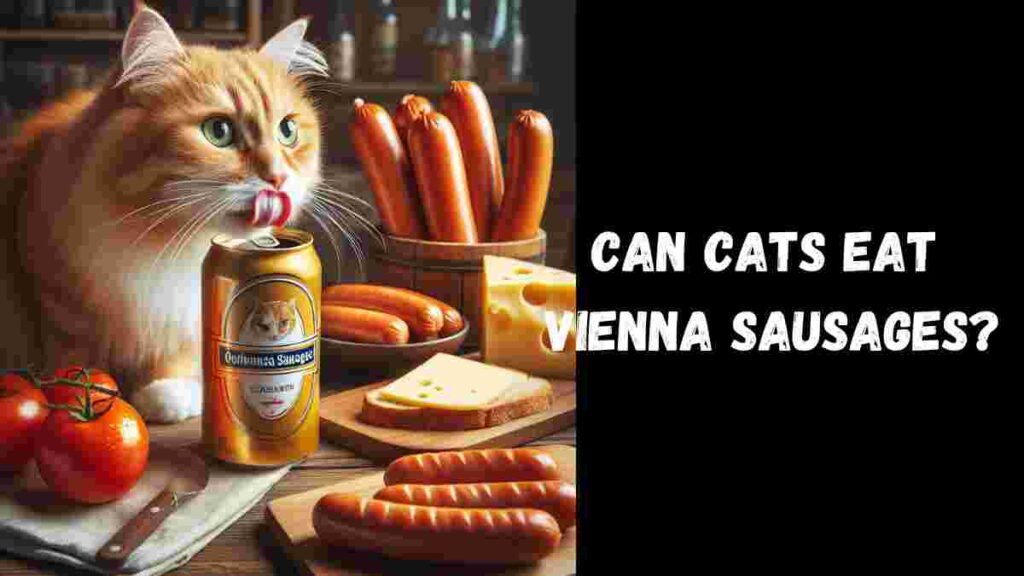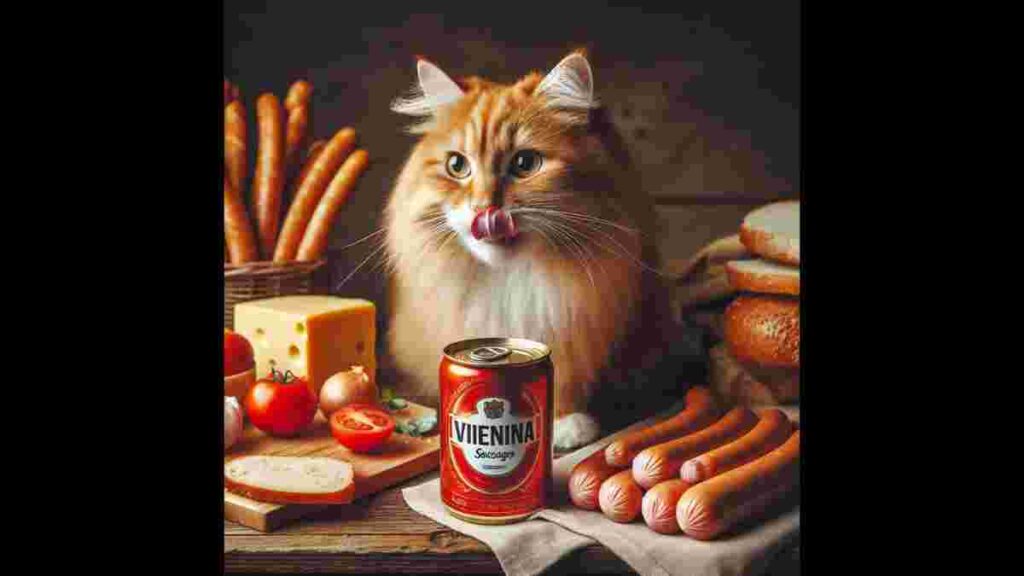Can Cats Eat Vienna Sausages: The internet is awash with pet owners asking if their furry friends can indulge in certain human foods. One notorious point of contention is vienna sausages. With their convenience and popularity, understanding the impact of vienna sausages on feline health is crucial for any cat owner who wants to ensure their pet’s well-being.
This article aims to demystify the vienna sausage conundrum and provide cat owners with a clear understanding of how these sausages can affect their pet’s health. Let’s find out the answer to the question, “Can Cats Eat Vienna Sausages?”
Find the best food for your feline friend here
Get the best litter deals for your cat friend

Table of Contents
Understanding Feline Nutrition – Can Cats Eat Vienna Sausages?
Cats are obligate carnivores, meaning that their nutritional needs are primarily met by eating animal tissue. These needs are reflected in their diet of protein-packed meals and the almost complete absence of carbohydrate requirements.
The Obligate Carnivore’s Diet
A feline diet consists of proteins such as taurine, arginine, and other essential amino acids, as well as essential fatty acids, and vitamins like A and D3 which can only be properly obtained through animal sources.
Preferences and Aversions
Cats have evolved to require meat, and their physiological systems have adapted to thrive on diets that are rich in animal protein and fat. This specialization extends to their taste bud receptors, as cats have very few sweet taste receptors, hinting at their aversion to carbohydrate-heavy diets.
Decoding Vienna Sausages
What exactly are vienna sausages, and why are they controversial in feline diets?
The Anatomy of a Sausage
Vienna sausages are a type of processed meat product, typically made from a mixture of pork, chicken, and beef. They are known for their distinct taste and convenient, shelf-stable packaging.
Identifying Risks
The controversy lies in the ingredients used in the production of these sausages. Their high salt content, artificial flavors, and preservatives like sodium nitrite can be concerning when it comes to feline health.
Potential Risks of Feeding Vienna Sausages to Cats
Despite the appeal of vienna sausages, they pose several risks when consumed by cats.
High Sodium Content
Cats have a low tolerance for sodium compared to their human counterparts. The high sodium levels in vienna sausages can lead to salt poisoning, manifesting in symptoms such as vomiting, diarrhea, seizures, and even death.
The Issue with Processed Ingredients
Artificial flavors and preservatives can be irritating to a cat’s delicate digestive system. Digestive upsets and allergic reactions are common concerns with such ingredients.
Nutritional Imbalance
The nutritional profile of vienna sausages is not tailored to a cat’s needs. The overreliance on one type of meat, processed meats in general, and the lack of vital nutrients like taurine, can lead to deficiencies in key areas of cat nutrition.

Safe Alternatives for Your Feline Friend
For pet owners who want to treat their cats, there are much safer alternatives that won’t compromise feline health.
High-Quality Cat Food
The best way to ensure your cat receives the nutrition it needs is to provide a high-quality cat food formulated by veterinary nutritionists. These foods are designed to meet the specific nutritional needs of cats.
Fresh Meat Treats
Small bits of cooked, unseasoned meat are a much better treat for cats than vienna sausages. Ensure the meat is thoroughly cooked to avoid any foodborne illnesses and limit the treat size based on your cat’s size and breed.
Consultation with a Veterinarian
If you’re unsure about a food’s safety for your cat, consult your veterinarian. They can advise you on the best diet for your cat’s specific needs.
Prioritizing Feline Health
Caring for a cat means making informed decisions about their diet and lifestyle. This is especially important when it comes to what they eat.
Monitoring Your Cat’s Diet
Be diligent in monitoring what your cat consumes. Even small amounts of certain foods can have a significant impact on their health.
Final Thoughts on Feline Nutrition – Can Cats Eat Vienna Sausages?
Hope, the answer is clear to the question, “Can Cats Eat Vienna Sausages?”Feeding your cat vienna sausages, despite their appeal, is not in your pet’s best interest. Opting for high-quality cat food and occasional safe treats ensures that your cat receives the proper nutrition without the risks associated with processed human foods.
Your cat is part of your family, and just as you would for other family members, it’s important to make choices that prioritize their health and longevity.

While the idea of sharing Vienna sausages with your cat might seem harmless, it’s essential to prioritize their health and well-being. Avoid exposing your feline friend to potential risks associated with processed foods high in sodium and artificial additives.
Instead, focus on providing a balanced diet consisting of high-quality, cat-friendly foods. Your cat will thank you with purrs of appreciation and good health.
Frequently Asked Questions (FAQ) – Can Cats Eat Vienna Sausages?
Can cats eat Vienna sausages?
While cats can technically eat Vienna sausages, it’s not recommended. These sausages are high in sodium and contain processed ingredients that can be harmful to cats’ health.
What are the risks of feeding Vienna sausages to cats?
Feeding Vienna sausages to cats can pose several risks, including dehydration, kidney issues, gastrointestinal upset, and allergic reactions due to the high sodium content and artificial additives.
Are there any safe alternatives to Vienna sausages for cats?
Yes, there are safer alternatives to Vienna sausages for cats. High-quality cat food, fresh cooked meat like chicken or turkey (without bones or seasoning), and consulting with a veterinarian for personalized recommendations are better options.
How can I ensure my cat’s diet is balanced and nutritious?
To ensure your cat’s diet is balanced and nutritious, prioritize high-quality cat food that meets their nutritional needs. Look for options rich in animal proteins and free from artificial additives. Additionally, offering occasional fresh meat treats can provide variety and additional nutrients.
Is it necessary to consult a veterinarian before changing my cat’s diet?
Yes, it’s advisable to consult a veterinarian before making any significant changes to your cat’s diet. They can provide guidance based on your cat’s specific needs, health status, and dietary preferences, helping to ensure a smooth transition and optimal health for your feline companion.
